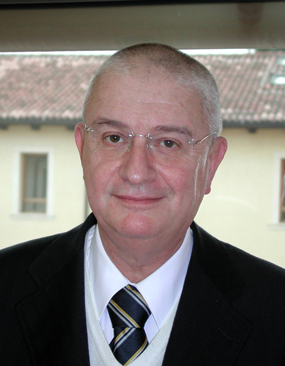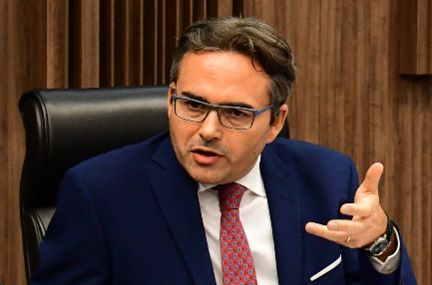Studying at the University of Verona
Here you can find information on the organisational aspects of the Programme, lecture timetables, learning activities and useful contact details for your time at the University, from enrolment to graduation.
Academic calendar
The academic calendar shows the deadlines and scheduled events that are relevant to students, teaching and technical-administrative staff of the University. Public holidays and University closures are also indicated. The academic year normally begins on 1 October each year and ends on 30 September of the following year.
Course calendar
The Academic Calendar sets out the degree programme lecture and exam timetables, as well as the relevant university closure dates..
| Period | From | To |
|---|---|---|
| 1° Periodo di lezioni | Oct 1, 2014 | Dec 16, 2014 |
| Periodo riservato ad eventuali recuperi di lezioni - dicembre 2014 | Dec 17, 2014 | Dec 18, 2014 |
| 2° Periodo di lezioni - febbraio/marzo 2015 | Feb 10, 2015 | Mar 30, 2015 |
| 2° Periodo di lezioni - aprile/maggio 2015 | Apr 8, 2015 | May 5, 2015 |
| Periodo riservato ad eventuali recuperi di lezioni - maggio 2015 | May 6, 2015 | May 8, 2015 |
| Session | From | To |
|---|---|---|
| Sessione straordinaria 14/15 - studenti f.c. - dicembre 2014 | Dec 19, 2014 | Dec 23, 2014 |
| 1° appello - Sessione invernale 14/15 | Jan 8, 2015 | Jan 14, 2015 |
| 2° appello - Sessione invernale 14/15 | Feb 2, 2015 | Feb 7, 2015 |
| Sessione straordinaria 14/15 - studenti f.c. - marzo/aprile 2015 | Mar 31, 2015 | Apr 2, 2015 |
| 1° appello - Sessione estiva 14/15 | May 11, 2015 | May 16, 2015 |
| 2° appello - Sessione estiva 14/15 | Jun 8, 2015 | Jun 13, 2015 |
| 3° appello - Sessione estiva 14/15 | Jul 6, 2015 | Jul 11, 2015 |
| 1° appello - Sessione autunnale 14/15 | Aug 31, 2015 | Sep 5, 2015 |
| 2° appello - Sessione autunnale 14/15 | Sep 24, 2015 | Sep 30, 2015 |
| Session | From | To |
|---|---|---|
| Termine presentazione tesi di laurea - ottobre 2014 | Sep 25, 2014 | Sep 25, 2014 |
| Sessione autunnale 14/15 | Oct 20, 2014 | Oct 21, 2014 |
| Termine presentazione tesi di laurea - gennaio 2015 | Jan 12, 2015 | Jan 12, 2015 |
| Sessione invernale 14/15 | Feb 9, 2015 | Feb 9, 2015 |
| Termine presentazione tesi di laurea - marzo 2015 | Feb 13, 2015 | Feb 13, 2015 |
| Sessione invernale 14/15 - marzo 2015 | Mar 17, 2015 | Mar 19, 2015 |
| Termine presentazione tesi di laurea - luglio 2015 | Jun 8, 2015 | Jun 8, 2015 |
| Sessione estiva 14/15 | Jul 2, 2015 | Jul 3, 2015 |
| Period | From | To |
|---|---|---|
| Festa di Ognissanti | Nov 1, 2014 | Nov 1, 2014 |
| Festa dell'Immacolata Concezione | Dec 8, 2014 | Dec 8, 2014 |
| Vacanze di Natale | Dec 24, 2014 | Jan 6, 2015 |
| Vacanze di Pasqua | Apr 3, 2015 | Apr 7, 2015 |
| Festa della Liberazione | Apr 25, 2015 | Apr 25, 2015 |
| Festa dei Lavoratori | May 1, 2015 | May 1, 2015 |
| Festa del S. Patrono S. Zeno | May 21, 2015 | May 21, 2015 |
| Festa della Repubblica | Jun 2, 2015 | Jun 2, 2015 |
Exam calendar
Exam dates and rounds are managed by the relevant Law Teaching and Student Services Unit.
To view all the exam sessions available, please use the Exam dashboard on ESSE3.
If you forgot your login details or have problems logging in, please contact the relevant IT HelpDesk, or check the login details recovery web page.
Academic staff
 giovanni.alberti@univr.it
giovanni.alberti@univr.it
 mariacaterina.baruffi@univr.it
mariacaterina.baruffi@univr.it

Dalla Massara Tommaso
 tommaso.dallamassara@univr.it
tommaso.dallamassara@univr.it
 +39 045 8028810
+39 045 8028810
 roberto.flor@univr.it
roberto.flor@univr.it
 rita.maggi@univr.it
rita.maggi@univr.it

Manzoni Elena
 elena.manzoni@univr.it
elena.manzoni@univr.it
 8783
8783

Patrono Paolo
 paolo.patrono@univr.it
paolo.patrono@univr.it
 +39 045 8028813
+39 045 8028813
 lorenzo.salvatore@univr.it
lorenzo.salvatore@univr.it
 marcello.stella@univr.it
marcello.stella@univr.it
Strano Silvana
 silvana.stranoligato@univr.it
silvana.stranoligato@univr.it
 +39 045 8028856
+39 045 8028856
 claudio.tomazzoli@univr.it
claudio.tomazzoli@univr.it
Study Plan
The Study Plan includes all modules, teaching and learning activities that each student will need to undertake during their time at the University.
Please select your Study Plan based on your enrollment year.
1° Year
| Modules | Credits | TAF | SSD |
|---|
History of Medieval and Modern Law
Principles of economics
Roman Law Institutions
2° Year activated in the A.Y. 2015/2016
| Modules | Credits | TAF | SSD |
|---|
3° Year activated in the A.Y. 2016/2017
| Modules | Credits | TAF | SSD |
|---|
Legal terminology in a foreign language4° Year activated in the A.Y. 2017/2018
| Modules | Credits | TAF | SSD |
|---|
5° Year activated in the A.Y. 2018/2019
| Modules | Credits | TAF | SSD |
|---|
5 disciplines at choice| Modules | Credits | TAF | SSD |
|---|
History of Medieval and Modern Law
Principles of economics
Roman Law Institutions
| Modules | Credits | TAF | SSD |
|---|
| Modules | Credits | TAF | SSD |
|---|
Legal terminology in a foreign language| Modules | Credits | TAF | SSD |
|---|
| Modules | Credits | TAF | SSD |
|---|
5 disciplines at choiceLegend | Type of training activity (TTA)
TAF (Type of Educational Activity) All courses and activities are classified into different types of educational activities, indicated by a letter.
Type D and Type F activities
Modules not yet included
Cultural Heritage and Landscape Law (2018/2019)
Teaching code
4S00353
Teacher
Coordinator
Credits
6
Language
Italian
Scientific Disciplinary Sector (SSD)
IUS/10 - ADMINISTRATIVE LAW
Period
2° periodo di lezioni - aprile/maggio 2019, 2° periodo di lezioni - febbraio/aprile 2019
Learning outcomes
The course aims to provide the student already having a basic knowledge of public and administrative law, with a deeper and more detailed knowledge of the cultural heritage and landscape sector.
The course will cover both the organizational and functional aspects of the subject-matter, including the Ministry of Cultural Heritage and Tourism (MIBACT) structure and competence and the Code of cultural heritage and landscape provisions.
At the end of the course, student shall have acquired specific knowledge to allow them to:
- distinguish the specific features of the public structures involved in cultural heritage and landscape’s protection as well as the peculiarities of the relevant administrative procedures and legal instruments.
- interpret the Code’s provisions according to the most relevant administrative courts’ decisions on the matter.
Program
Contents of the course:
- Cultural heritage public law and the relevant Ministry: the structure of MIBACT Legislative and administrative powers of the state and the regions (art. 117-118 Cost.)
- Cultural heritage and its definition
- Selecting and listing tangibles: public and private cultural property
- Heritage legal protection: usage and conservation. The cultural heritage market: domestic and international legal issues.
- Managing and improving cultural heritage: the public/public and the public/private partnership
- The legal protection of landscape: selecting and listing protected areas
- Landscape planning
- Landscape permissions
The teaching methods used differ depending upon whether the students are attending or non-attending students.
Attending students
The teaching methods involve face-to-face lessons for the purpose of learning basic concepts and systematic linkages as well as strategies for reasoning and argumentation in order to interpret the relevant legislative provisions and to structure solutions to practical problems.
Non-attending students
The teaching methods involve teacher-led support for the study of up-to-date textbooks.
| Author | Title | Publishing house | Year | ISBN | Notes |
|---|---|---|---|---|---|
| C.BARBATI, M. CAMMELLI, L. CASINI, G. PIPERATA, G. SCIULLO | Diritto del patrimonio culturale | Il Mulino, Bologna | 2020 | Escluso il capitolo VI. |
Examination Methods
Oral exam. The exam aims to ascertain the knowledge of the subject–matter including the legislative provisions relating both to cultural heritage and landscape. Ability to sistematic reconstruction of the main legal issues and to present them correctly will also be evaluated. Marks are expressed in thirtieths.
ERASMUS students
ERASMUS students are invited to contact the teacher responsible at the start of the course in order to be set a specific topic to be analysed in greater depth in a course essay. That essay will then be the object of an oral discussion in the examinations scheduled within the academic calendar.
Career prospects
Module/Programme news
News for students
There you will find information, resources and services useful during your time at the University (Student’s exam record, your study plan on ESSE3, Distance Learning courses, university email account, office forms, administrative procedures, etc.). You can log into MyUnivr with your GIA login details: only in this way will you be able to receive notification of all the notices from your teachers and your secretariat via email and also via the Univr app.
Language skills
Graduation
Internships
Internships are aimed at enabling students to gain direct knowledge of the world of work and to acquire specific professional skills.
Internships are carried out under the responsibility of an individual lecturer, and can be carried out in professional firms, public administration bodies and companies recognised by the University of Verona.
Any CFU credits gained by doing internships will be recognised and recorded by the University in accordance with the relevant University regulations in force (Regolamento d’Ateneo per il riconoscimento dei crediti maturati negli stage universitari).
For further information on internships, please go to: https://www.univr.it/it/i-nostri-servizi/stage-e-tirocini.
Student mentoring
Dissertation
Gestione carriere
Student login and resources
Modalità e sedi di frequenza
La frequenza non è obbligatoria.
Maggiori dettagli in merito all'obbligo di frequenza vengono riportati nel Regolamento del corso di studio disponibile alla voce Regolamenti nel menu Il Corso. Anche se il regolamento non prevede un obbligo specifico, verifica le indicazioni previste dal singolo docente per ciascun insegnamento o per eventuali laboratori e/o tirocinio.
È consentita l'iscrizione a tempo parziale. Per saperne di più consulta la pagina Possibilità di iscrizione Part time.
La sede di svolgimento delle lezioni e degli esami è il Palazzo e aule didattiche di giurisprudenza











































